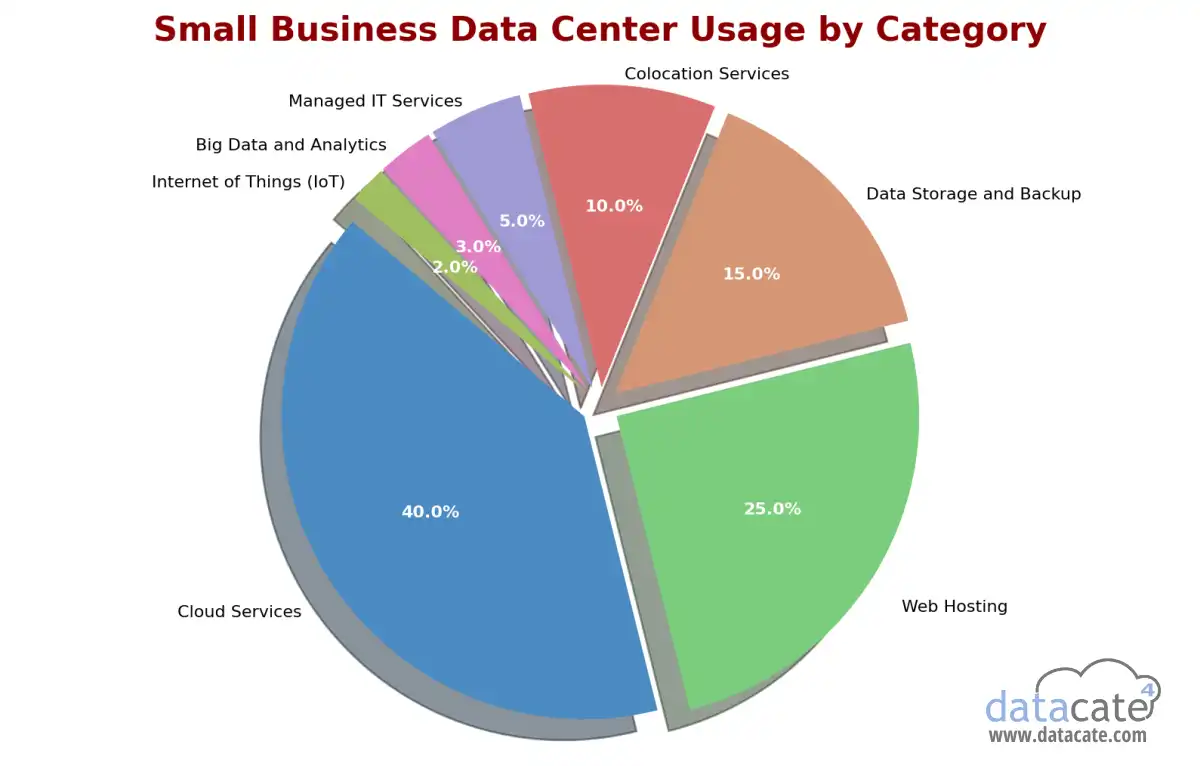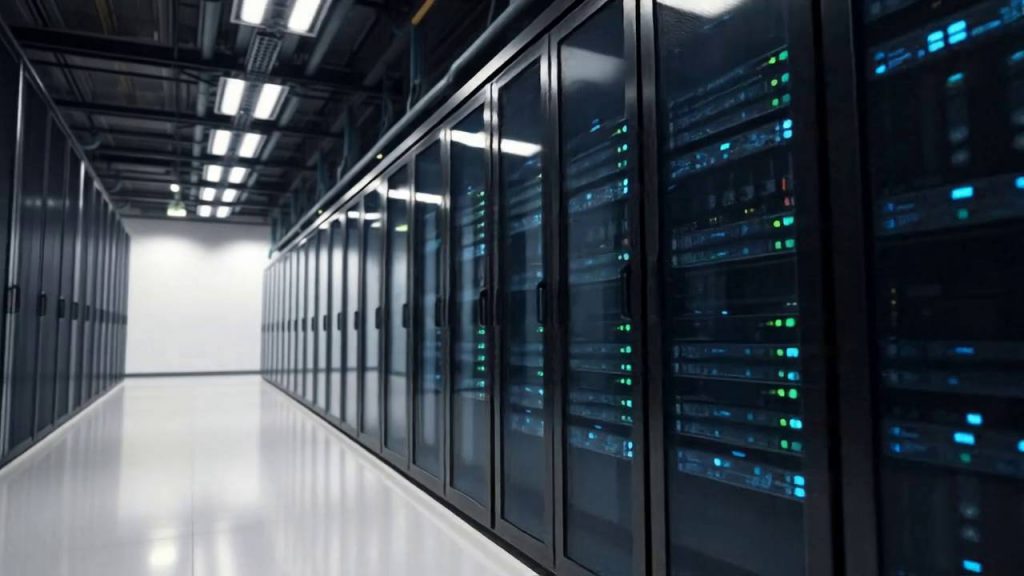Small businesses utilize data center services in various ways to support their operations and growth. Here’s a breakdown of common use cases for data center deployments among small businesses, with estimated relative percentages:

Cloud Services – 40%
The largest segment of small business data center usage is for cloud services, including:
- Software-as-a-Service (SaaS) – Using cloud-based applications for email, productivity, accounting, customer relationship management, etc.
- Infrastructure-as-a-Service (IaaS) – Leveraging cloud computing resources for processing power and storage.
- Platform-as-a-Service (PaaS) – Utilizing cloud platforms for application development and deployment.
Web Hosting – 25%
Many small businesses rely on data centers for hosting their websites and e-commerce platforms. This includes:
- Shared hosting for basic websites
- Dedicated hosting for high-traffic sites
- E-commerce hosting for online stores
Data Storage and Backup – 15%
Small businesses use data centers for secure storage and backup of critical data:
- Cloud storage solutions
- Offsite backup and disaster recovery services
Colocation Services – 10%
Some small businesses opt for colocation, where they place their own servers in a data center facility:
- Renting rack space in a shared data center
- Benefiting from the data center’s power, cooling, and security infrastructure
Managed IT Services – 5%
Data centers often provide managed IT services that small businesses can leverage:
- Network management
- Security services
- IT support and maintenance
Big Data and Analytics – 3%
A growing number of small businesses are using data centers for:
- Data analytics platforms
- Business intelligence tools
- Machine learning and AI applications
Internet of Things (IoT) – 2%
Some small businesses are beginning to use data centers for IoT applications:
- Data processing from IoT devices
- IoT platform hosting
This breakdown reflects general trends in small business data center usage[1][2][3]. The exact percentages may vary depending on the specific industry, business size, and technological needs. As technology evolves, we can expect to see shifts in these percentages, with potential growth in areas like IoT and big data analytics for small businesses.







